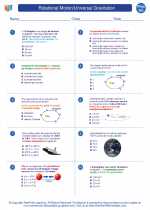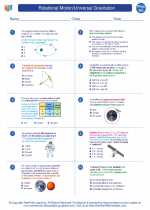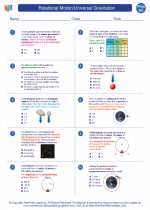Atomic Mass
Atomic mass is a fundamental concept in chemistry and physics that refers to the mass of an atom of a chemical element. It is typically expressed in atomic mass units (u) or in SI units, kilograms.
Understanding Atomic Mass
The atomic mass of an atom is determined by the total mass of protons, neutrons, and electrons in the atom. Protons and neutrons contribute most of the mass, while electrons have negligible mass compared to protons and neutrons.
Calculating Atomic Mass
The atomic mass of an element is calculated as the weighted average of the masses of its isotopes, taking into account the abundance of each isotope. The formula for calculating atomic mass is:
center;"> Atomic Mass = (Mass of Isotope 1 * Abundance of Isotope 1) + (Mass of Isotope 2 * Abundance of Isotope 2) + ...
Units of Atomic Mass
The standard unit of atomic mass is the unified atomic mass unit (u), which is defined as 1/12 of the mass of a carbon-12 atom. In the SI system, atomic mass is also expressed in kilograms (kg).
Study Guide
.◂Physics Worksheets and Study Guides High School. Rotational Motion/Universal Gravitation

 Worksheet/Answer key
Worksheet/Answer key
 Worksheet/Answer key
Worksheet/Answer key
